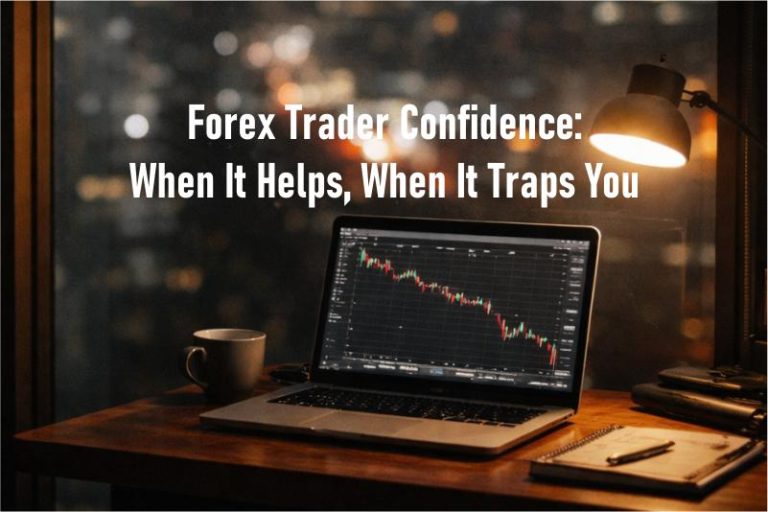
Have you ever felt the irresistible urge to open just one more trade, even when your strategy says otherwise? You’re not alone. Overtrading is one of the most common and dangerous habits among forex traders, especially beginners. It’s easy to fall into this trap when markets are constantly moving and every price tick feels like a missed opportunity.
In the forex market, overtrading refers to the excessive buying or selling of currency pairs, often driven by emotions rather than logic. It leads to poor decisions, increased transaction costs, and ultimately, a blown account. In this article, we’ll explore the psychological triggers behind overtrading, how to recognize it, and how to stop it before it sabotages your trading career.
What Is Overtrading in Forex?
Overtrading in forex occurs when a trader executes too many trades within a short period or risks too much capital on multiple trades simultaneously. This behavior is not just about frequency; it’s about trading without a clear plan or without waiting for high-quality setups.
Example: A trader sees a small price movement and immediately enters a position, despite no signal from their trading system. They do this repeatedly throughout the day, driven by a fear of missing out.
Key Differences:
- Frequent Trading involves regular trades based on a tested strategy (e.g., scalping or day trading).
- Overtrading is impulsive, emotionally driven, and usually unplanned.
Dangers of Overtrading:
- Emotional burnout
- Increased spread/commission costs
- Higher exposure to market noise
- Decreased win rate and profitability
The Psychology Behind Overtrading
Understanding the psychological causes of overtrading is the first step in preventing it.
FOMO (Fear of Missing Out): Traders see price moving and feel they must act quickly or lose out. This fear overrides rational thinking.
Revenge Trading: After a loss, traders often enter a new trade immediately to try to recover. This is usually done without analysis and leads to further losses.
Greed: A series of wins can make traders overconfident, pushing them to risk more, trade more, and ignore their trading plan.
Impatience and Boredom: When markets are slow, traders may force trades just to feel productive. This leads to lower-quality setups.
Behavioral Finance Concepts:
- Loss Aversion: Fear of losing makes traders double down on bad trades.
- Overconfidence Bias: Successes inflate the ego, leading to riskier trades.
Key Signs You’re Overtrading
Recognizing overtrading in your behavior is essential. Here are common signs:
- Constantly opening new trades regardless of setup quality
- Ignoring your trading plan or risk parameters
- Feeling anxious or regretful after placing trades
- Quickly depleting your margin or balance
- Declining quality of trade setups and strategy adherence
These behaviors often snowball and become habitual unless addressed.
The Impact of Overtrading on Your Forex Account
Overtrading may provide short-term excitement, but the long-term consequences are usually devastating.
- Increased Transaction Costs: Every trade has a spread or commission. Over time, these eat into your profits.
- Drawdowns: More trades mean more opportunities for losses. Frequent losses can lead to a significant drop in account balance.
- Emotional Fatigue: Constant decision-making wears you down mentally, leading to poor judgment.
Example: A trader starts with $1,000 and risks 10% per trade due to overconfidence. Within five bad trades, the account is down to nearly half. This creates panic, leading to further impulsive trades.
How to Stop Overtrading: Practical Tips
- Create and Follow a Trading Plan: Define when to trade, how much to risk, and when to exit. Stick to it religiously.
- Limit Your Trades: Set a maximum number of trades per day or week. This prevents compulsive behavior.
- Use a Trading Journal: Document your trades and review your mistakes. Awareness leads to accountability.
- Focus on Quality Setups Only: Be selective. Wait for clear confirmation from your system before entering a trade.
- Apply Strict Risk Management: Never risk more than 1–2% per trade. Protect your capital at all costs.
- Schedule Breaks: Step away from the screen. Regular breaks help maintain focus and prevent impulsive decisions.
Developing Mental Discipline for Long-Term Success
Mindfulness and Meditation: Train your mind to stay calm and focused. Meditation helps you recognize emotional impulses before acting on them.
Use Pre-Trade Checklists: Ensure every trade meets specific criteria before execution. This adds structure and control.
Backtesting: Test your strategies on historical data to build confidence and reduce doubt.
Weekly Trade Reviews: Set time aside to review trades and identify emotional triggers or mistakes. Learn and adjust.
Discipline isn’t built overnight—it’s a habit formed through consistent effort and self-reflection.
Overtrading vs Consistent Trading: Know the Difference

Consistent traders focus on quality, not quantity. They understand that the best trades often require patience and discipline.
Final Thoughts: Master Your Mind, Master the Market
Over trading is not just a technical mistake—it’s a psychological challenge. If you want to succeed in forex, you must train your mind as much as you train your strategy.
By understanding the emotional triggers behind overtrading and applying practical tools to manage them, you can develop into a disciplined, consistent trader.
Remember: Less is often more in trading. Quality over quantity wins in the long run.
FAQ Section
Is overtrading the same as scalping?
No. Scalping is a strategy involving frequent trades based on a strict plan. Overtrading is excessive and often unplanned.
Can a trading bot help prevent overtrading?
Yes. Automated systems follow pre-set rules and remove emotional decision-making, helping reduce overtrading.
How can I tell if I’m overtrading?
If you’re trading out of boredom, revenge, or impulse without a signal, you’re likely overtrading.



